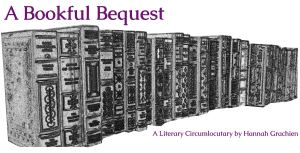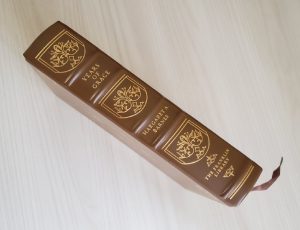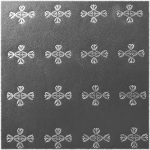Margaret A. Barnes, 1930
Pulitzer Prize, 1931

OK, so I don’t know what to do with this one. Why did I read it? Why did it win a Pulitzer Prize? It seems to me I have just read 563 pages about another group of rather well-off people, but this time just to discover that life “is what it is,” as people so annoyingly, and frequently, pronounce.
The book is divided into four parts, each named after a significant person or significant people in the life of the main character, Jane. Apparently, the years referenced in the title, or the life itself, are measured in people (not coffee spoons!). And it’s merely the life of a woman in a reasonably well-to-do family: she grows up under certain expectations and adjusts; she marries one man instead of another and, later, decides whether or not to have an affair; she raises children, who then marry, reproduce, and divorce, not according to her expectations. It’s all rather matter of fact. I admit, she spends the whole book, most of her life, wondering about things – how life works, the nature or even existence of right and wrong, expectations and reality. Big questions, I suppose, but always in the most mundane of contexts.

In the introduction to the Franklin edition, which calls the writing “essentially timeless,” The New York Times is quoted as saying, at the time of publication, that the book is the “story of the death of an old order and the birth of a new one, of the perpetually renewed conflict between succeeding generations.” The introduction also notes that the story, as interpreted by the NYT, “could be just as current today,” which was 1976. I think I could see that statement ringing true in the 1930s (or not, for as we know World War I had already caused significant social upheaval), but in the decade following the turbulence of the 1960s? Really?
I feel like I’m missing something.
And Jane’s grand conclusion is, as the song she quotes (Gilbert and Sullivan’s “Three Little Maids from School”) goes, “Everything is a source of fun,/Nobody’s safe, for we care for none,/Life is a joke that’s just begun –” The lines are followed by this reflection: “When you looked at a child … you could never believe that it would grow up to disappoint you.” These are the final lines in the book. I can’t quite decide if they are meant to be taken literally, i.e., that some kind of knowledge of what it means to raise progeny is the key to knowledge of the meaning of life – hence, perhaps, the parts of the book being named after key people, the final one after her children – or if the reference to the child is meant metaphorically, i.e., that the act of creation is always full of hope or ambition or faith or something positive, but the results don’t always make good on that sense of promise. And accepting that fact is the meaning of life?
I think I prefer 42.
Tonneau – a rear part or compartment of an automobile body, containing seats for passengers
Cheval glace – a full length mirror on swivels in a frame
Inanition – exhaustion caused by lack of nourishment

What is A Bookful Bequest? Read about Hannah Grachien’s Literary Circumlocutary
Coming soon: James Agee’s A Death in the Family
